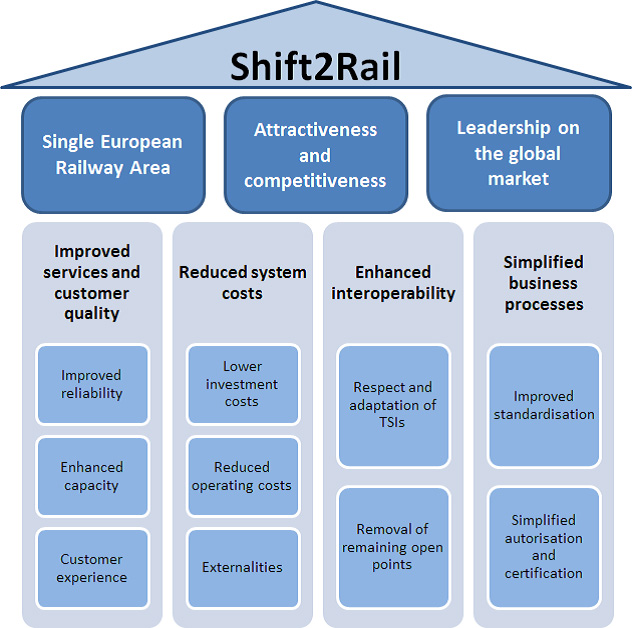Blog
Looking Towards the Future: Shift2Rail at the heart of the Railway Innovation process
Carlo Borghini
24 July 2017

Carlo spoke about the key objectives of Shift2Rail at the 4th International Railway Summit, and the digital innovation at its heart during the 5th International Railway Summit in Kuala Lumpur.
Carlo will discuss how operators can make the most of the digital data flood with the use of advanced analytics, as well as the role of transport in Smart Cities, at the 7th International Railway Summit in Frankfurt.
As the first and unique European Railway Research and Innovation (R&I) Programme, the Shift2Rail Joint Undertaking (S2R JU), co-funded through the Union’s Horizon2020 Programme, was pleased to participate in the 4th International Railway Summit. Speaking at the summit, it was essential to highlight how Shift2Rail creates innovative solutions for the railway system.

Within the thematic group of EU agencies and bodies supporting EU businesses and innovation, Shift2Rail contributes to smart and sustainable growth through its actions to foster research and innovation in the railway sector. The purpose is to achieve a Single European Railway Area; to enhance the attractiveness and the competitiveness of the European railway system in order to encourage a modal shift from roads towards a more sustainable mode of transport such as rail; and to sustain the leadership of the European rail industry on the global market. These objectives are measured against the following key performance indicators:
- doubling of railway capacity;
- increasing reliability and punctuality by as much as 50% and;
- halving the life-cycle cost of railway
Background
S2R JU was established in 2014 as a public-private partnership in order to increase the investment in research and innovation, and has been fully operational since May 2016. It functions as a platform for the railway sector as a whole to collaborate, coordinate innovation efforts and exchange expertise. It also offers opportunities for SMEs, Research Centres, and Universities to join the R&I activities through its open calls for non-JU members, which comprises at least 30% of the Union’s contribution.
The Founding Members of the Joint Undertaking are the European Union plus eight representatives of the rail industry, including rail equipment manufacturers Alstom, Ansaldo STS, Bombardier, Construcciones y Auxiliar de Ferrocarriles (CAF), Siemens and Thales, along with infrastructure managers Network Rail and Trafikverket. Additional members were selected through an open call with the aim to ensure that railway undertakings and other important public and private stakeholders in the railway sector, as well as actors from outside the sector, are fully represented.
Contribution to Smart and Sustainable Growth
To achieve S2R’s objectives, S2R JU set up five Innovation Programmes (IPs) and a crosscutting package providing the framework for the activities to be implemented. S2R JU provides a new approach to R&I activities with the objective to overcome R&I fragmentation, implement innovative solutions and support their market uptake. Integrated in the S2R R&I Programme is a strong emphasis on demonstration activities and the dissemination of relevant results for market uptake. Railway R&I must address evolving user needs, target cost and efficiency of the Rail Services as well as work towards a more competitive and stronger European Railway industry. Innovation in communication, automation through digitalisation making use of, for example, the rapid developments in artificial intelligence is a necessary step the sector must undertake to deliver a user-centred mobility as a service, for passengers and freight. It should accompany an evolution within the industry towards a new business model boosting its competitiveness and attractiveness.
Category: Blog Research and Innovation
Tags: innovation railway Shift2Rail
About the author

Mr Carlo Borghini was appointed Executive Director of the Shift2Rail Joint Undertaking on 16 February 2016 and is responsible for the overall management of the S2R JU activities.
Before joining the S2R JU, he held various Senior Management positions in other international private and public organisations. From 2008 to 2014 Mr Borghini held the position of Deputy Executive Director for the SESAR Joint Undertaking (SJU), in Brussels. In this capacity, he had specific responsibilities for corporate governance, administration and finance while contributing to the overall management of the programme. More specifically, he managed a budget amounting to over €2 billion, with a portfolio of more than 300 different projects undertaken by the 16 SJU Members.